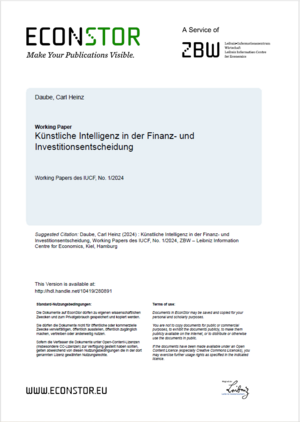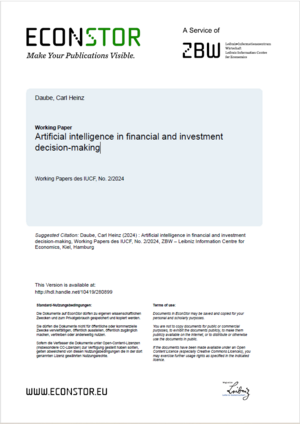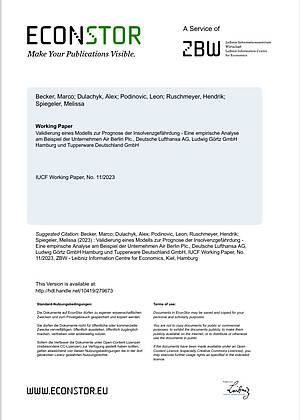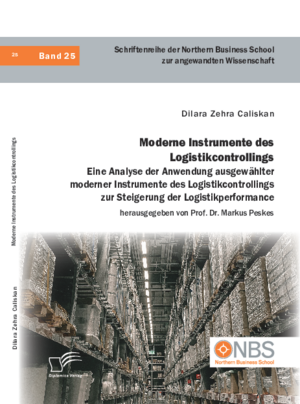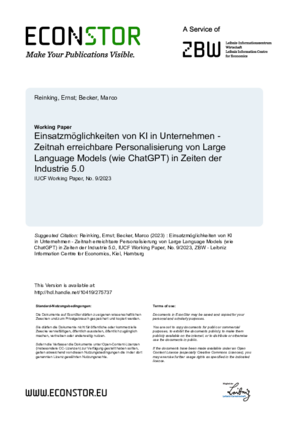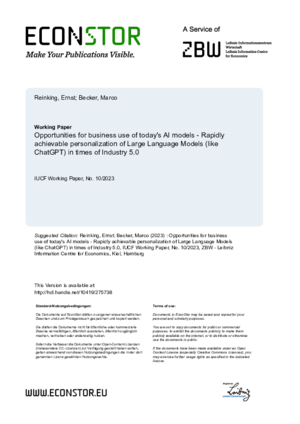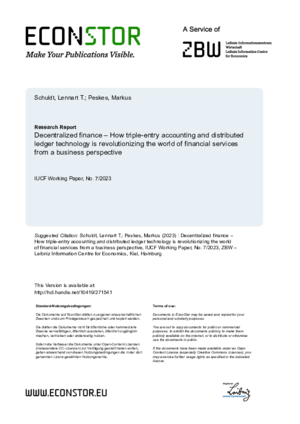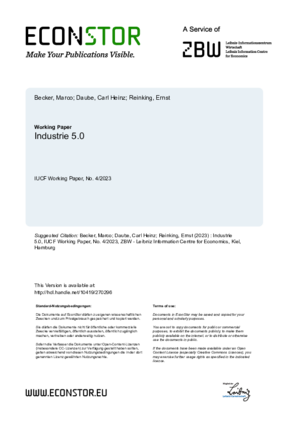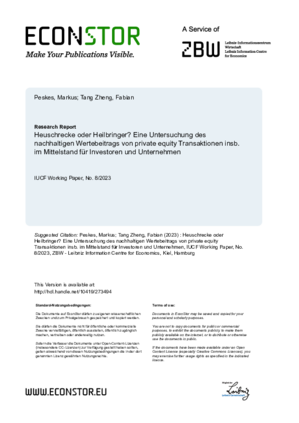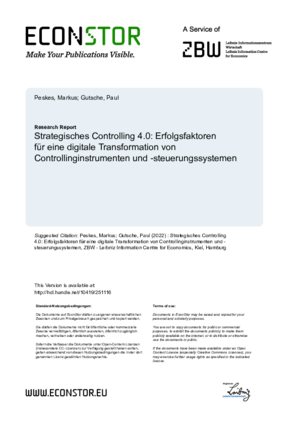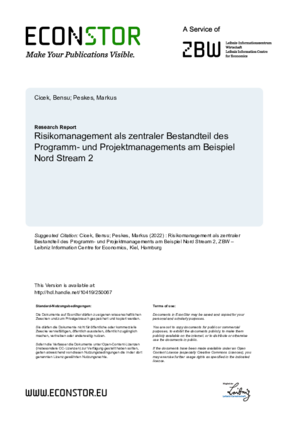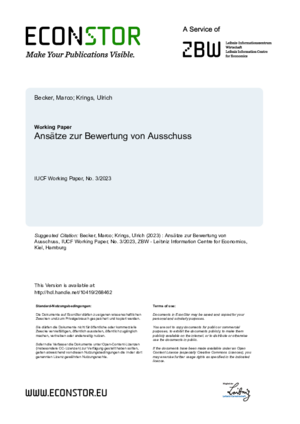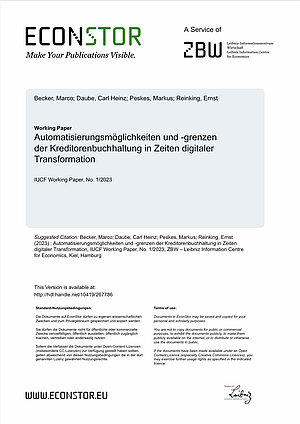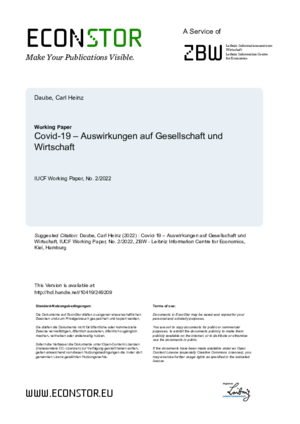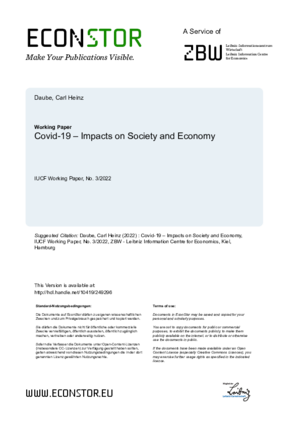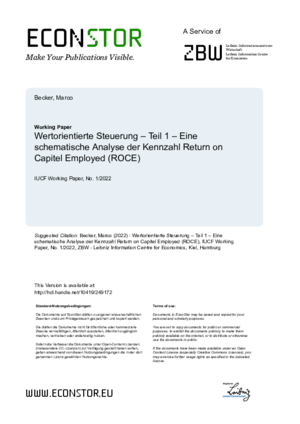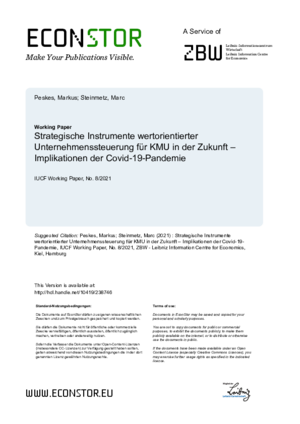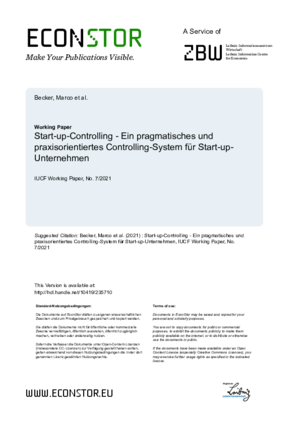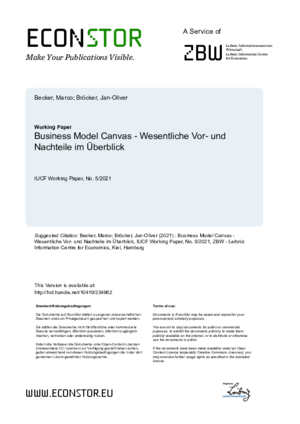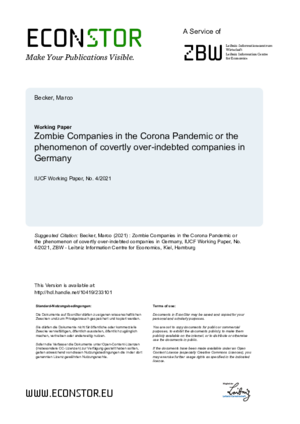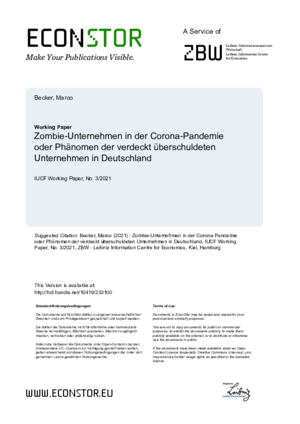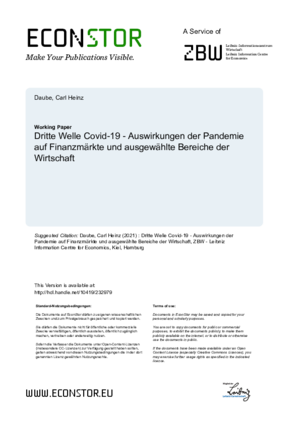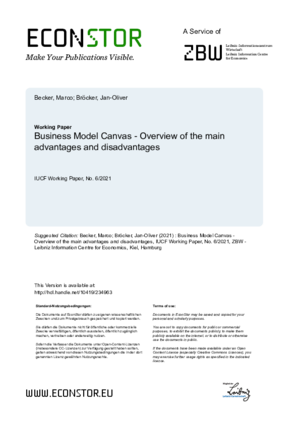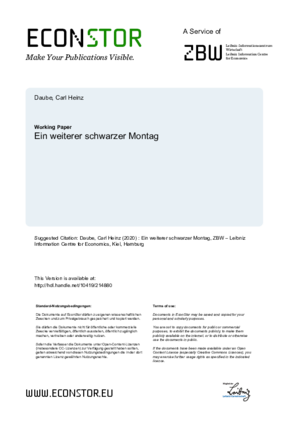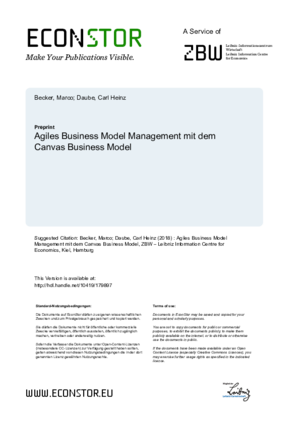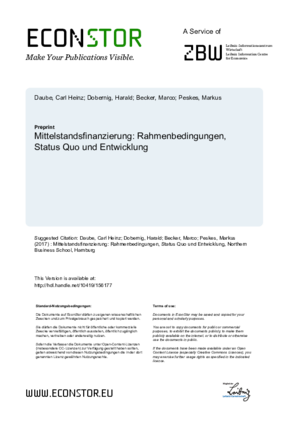EU Artificial Intelligence Act - Ein systematisches Verfahren zur Einstufung in die Risiko-Klassen
Autor:
Becker, Marco / Reinking, Ernst
Abstract:
Der EU-AI-Act markiert einen wichtigen ersten Schritt in der Regulierung von Künstlicher Intelligenz.
Erstmals wird darin ein risikobasiertes Klassifikationssystem für KI-Anwendungen eingeführt, wobei unterschiedliche Folgewirkungen je nach Risikoklasse definiert werden. Die Einstufung von KI-Systemen in die entsprechende Risikoklasse ist somit von entscheidender Bedeutung.
Im Folgenden wird ein neuartiges Schema zur systematischen Einstufung von Risikoklassen im Rahmen des EU-AI-Acts vorgestellt. Dieses strukturierte Vorgehensmodell zielt darauf ab, die Transparenz und Konsistenz bei der Risikobewertung von KI-Systemen zu verbessern. Es kann dabei als praktische Grundlage für die Einhaltung des EU-AI-Acts dienen und fördert somit einen verantwortungsbewussten Umgang mit Künstlicher Intelligenz.
Künstliche Intelligenz in der Finanz- und Investitionsentscheidung
Autor:
Daube, Carl Heinz
Abstract:
Ziel dieses Working Papers ist es, eine kurze Einführung in die Künstliche Intelligenz zu geben und konkrete Einsatzmöglichkeiten in der Finanz- und Investitionsentscheidung aufzuzeigen. Dabei geht es zum einen darum, wo KI heute
schon in vielen Bereichen der Finanzindustrie zum Einsatz kommt. Zum anderen geht es darum exemplarisch aufzuzeigen, was in naher Zukunft möglich sein wird und wo es auf der Basis von KI zu besseren, fundierteren Entscheidungen kommen könnte.
Artificial intelligence in financial and investment decision-making
Author:
Daube, Carl Heinz
Abstract:
The aim of this working paper is to provide a brief introduction to artificial intelligence and highlight specific potential applications in financial and investment decisionmaking. On the one hand, it is about where AI is already being used today in many
areas of the financial industry. On the other hand, the aim is to show examples of what will be possible in the near future and where AI might lead to better, more sound decisions.
Validierung eines Modells zur Prognose der Insolvenzgefährdung
Author:
Becker, Marco; Dulachyk, Alex; Podinovic, Leon; Ruschmeyer, Hendrik; Spiegeler, Melissa
Abstrakt:
Gerade in wirtschaftlich schwierigen Zeiten ist Zeit ein entscheidender Faktor für Unternehmen. Eine
frühzeitige Erkennung möglicher Insolvenzrisiken verschafft den betroffenen Unternehmen wertvolle
Zeit, um den Turn-Around einzuleiten.
Das hier präsentierte Modell zur Prognose von Insolvenzrisiken basiert auf wenigen öffentlich
verfügbaren Daten und konzentriert sich auf die Beurteilung von drei Schlüsselkennzahlen.
Der folgende Link führt Sie zu der Veröffentlichung:
Forschungsbericht der NBS Hochschule für Management und Sicherheit
Unternehmen in der Logistik sind permanent steigenden Herausforderungen
ausgesetzt. Diese reichen von komplizierter werdenden
Kundenanforderungen nach einer erhöhten Nachhaltigkeits- und
Serviceorientierung bis hin zu verschärften Wettbewerbsbedingungen,
in der neben der Kostenführerschaft eine Qualitäts- und Innovationsfokussierung
von Notwendigkeit ist und dadurch einen stetigen
Handlungsbedarf für Unternehmen bedeutet. Um das Management
bei dieser zunehmenden Komplexität der Logistik adäquat zu unterstützen,
soll das Logistikcontrolling die notwendige Informationsversorgung
und Beratung des Managements gewährleisten. Hierfür ist
jedoch ein geeignetes, modernes Instrumentarium zur Erfüllung der
steigenden Anforderungskriterien von Bedeutung.
Einsatzmöglichkeiten von KI in Unternehmen (2023)
Autor:
Reinking, Ernst; Becker, Marco
Abstract:
Mit der Einführung von ChatGPT als eines der bekanntesten Large Language Models wurde in der
allgemeinen Wahrnehmung nicht nur ein neues Kapitel der Künstlichen Intelligenz aufgeschlagen -
manche Autoren sprechen sogar von einer Ära der (Wirtschafts-)Informatik. Sie läutet auch die fünfte
industrielle Revolution (Industrie 5.0) ein.
Opportunities for business use of today's AI models (2023)
Author:
Reinking, Ernst; Becker, Marco
Abstract:
The introduction of ChatGPT as one of the best-known Large Language Models not only opened a new chapter in artificial intelligence in the general perception – some authors even speak of an era of (business) informatics. It also heralds the fifth industrial revolution (Industry 5.0).
Autor:
Schuldt, Lennart T.; Peskes, Markus
Abstract:
Decentralized finance (DeFi) is a rapidly growing science that leverages distributed ledger technology (DLT) to offer peer-to-peer financial services. Despite the volatility of the crypto market, the trend of increasing adoption of DeFi applications is evident and reflected in an increasing number of users, projects, market capitalization of projects, and total value locked. Thus, DeFi is creating a decentralized financial system in parallel with the traditional centralized system, depriving it of a growing amount of resources.
Autor:
Becker, Marco; Daube, Carl Heinz; Reinking, Ernst
Abstract:
Spätestens seit der Etablierung von ChatGPT als eine für die breite Masse sowohl der Unternehmen
als auch der Bevölkerung gleichermaßen interessante Anwendung der Künstlichen Intelligenz im
November 2022 neigt sich die Epoche der Industrie 4.0 dem Ende entgegen.
Autor:
Peskes, Markus; Tang Zheng, Fabian
Abstract:
Private Equity - eine Form der Unternehmensfinanzierung, die sich mittlerweile zu einer milliardenschweren Branche entwickelt hat, aber zugleich oftmals kritisiert wird - entstand aus dem Bedürfnis nach alternativen Finanzierungsmöglichkeiten und beeinflusste Wirtschaft und Gesellschaft nachhaltig.
Autor:
Peskes, Markus; Gutsche, Paul
Abstract:
Die Digitalisierung ist der maßgebliche Treiber des industriellen Wandels. Daher ist Industrie 4.0 auch in aller Munde und erstreckt sich längst nicht mehr auf In-dustrieunternehmen. Moderne Technologien verändern Unternehmensstruktu-ren und ganze Branchen. Ihr Einsatz, wie Big Data, künstliche Intelligenz (KI bzw. AI), Internet of Things (IoT) oder auch insb. Robotic Process Automation (RPA) wirkten und wirken sich sehr positiv auf alte und neue Geschäftsmodelle aus.
Autor:
Bensu Cicek, Markus Peskes
Abstract:
Plötzlich auftretende Störgrößen, wie auch dauerhaft bestehende Gefahren können das Management und den Erfolg von Projekten, aber insbesondere Programmen bedrohen. Besonders internationale Großprojekte, wie Nord Stream 2, die im Rahmen des Programmmanagements zu steuern sind, können neben klassischen Herausforderungen des Projektmanagements insb. durch eine Vielzahl unterschiedlicher Risiken auf politischer sowie wirtschaftlicher Ebene bedroht werden.
Ansätze zur Bewertung von Ausschuss (2023)
Autor:
Becker, Marco; Krings, Ulrich
Abstract:
Die kaufmännische Bewertung von Ausschuss stellt von je her in vielen Unternehmen ein Streitthema zwischen der Produktionsleitung, dem Qualitätsmanagement und der kaufmännischen Leitung dar. In der betrieblichen Praxis haben sich im Laufe der Jahre verschiedene Mechanismen zur kaufmännischen Bewertung von Ausschuss etabliert.
Autor:
Becker, Marco; Daube, Carl Heinz; Peskes, Markus; Reinking, Ernst
Abstract:
Die digitale Transformation betrifft alle Bereiche eines Unternehmens, auch die Verwaltung. Im Bereich der Buchhaltung erschließen sich durch den Einsatz innovativer Technologien viele Perspektiven zur Neugestaltung der etablierten Prozesse. In diesem Beitrag sollen die Potenziale der Digitalisierung auf die Kreditorenbuchhaltung untersucht werden, denn alle relevanten Tätigkeitsfelder des Berufsbilds Kreditorenbuchhalter lassen sich mit dem aktuellen Stand der Technik automatisieren.
Covid-19 – Auswirkungen auf Gesellschaft und Wirtschaft (2022)
Autor:
Daube, Carl Heinz
Abstract:
Covid-19 bestimmt seit dem Jahreswechsel 2019/20 weltweit weite Teile des öffentlichen und privaten Lebens. Die Einschränkungen in vielen Lebensbereichen können nicht ohne gesellschaftliche und ökonomische Folgen bleiben. In diesem Working-Paper wird versucht, einige Auswirkungen auf unsere Gesellschaft und unsere Wirtschaft qualitativ und quantitativ zu erfassen und näher zu analysieren
Covid-19 – Impacts on Society and Economy (2022)
Author:
Daube, Carl Heinz
Abstract:
Since the turn of the year 2019/2020, Covid-19 has determined large parts of public and private life worldwide. The restrictions are causing social and economic issues in all areas of life. This working paper attempts to quantify and qualify some impacts on our society and our economy and to analyse in more detail some of the effects.
Autor:
Becker, Marco
Abstract:
Auch wenn die Orientierung am Shareholder-Value-Ansatz in den letzten Jahren immer weiter aus der Mode gekommen ist, erfreut sich die wertorientierte Steuerung von Unternehmen – insbesondere in ihrer nachhaltigen Variante mit dem Fokus auf alle Stakeholder – einer zunehmenden Beliebtheit. Mit diesem Artikel wird der Return on Capital Employed (ROCE) als eine zentrale Kennzahl der nachhaltig wertorientierten Steuerung einer schematischen Untersuchung unterzogen.
Autoren:
Peskes, Markus; Steinmetz, Marc
Abstract:
Die weltweite Corona-Pandemie hat die globale Wirtschaft stark beeinflusst und weiterhin fest im Griff; nahezu alle Branchen sind betroffen. Von den Konsequenzen sind auch die kleinen und mittleren Unternehmen (KMU), die mit einem Anteil von über 99% aller Unternehmen das Herzstück der deutschen Wirtschaft bilden, betroffen. Sie kämpfen mit sinkenden Nachfragen und Versorgungsengpässen, teilweise sind zwischenzeitlich sogar ganze Lieferketten zusammengebrochen. Der Mittelstand hat mit solchen Folgen der Pandemie vor allem deshalb besonders zu kämpfen, da KMU im Gegensatz zu großen Konzernen, wie bspw. Lufthansa AG, nicht mit vielen Milliarden vom Staat unterstützt bzw. gerettet wurden. Auch kamen und kommen die Hilfen des Staates in den KMU oftmals mit deutlicher Verzögerung an. Die Finanzkraft der KMU speist sich überwiegend aus dem Eigenkapital der Eigentümer. Für sie spielt die langfristige und nachhaltige Unternehmenswertsteigerung als wichtiges strategisches Ziel daher eine besonders große Rolle. Doch wie verbreitet ist die wertorientierte Unternehmenssteuerung als strategisches Instrument in deutschen KMU überhaupt, und wie wird sie ihr Einsatz zukünftig, auch vor dem Hintergrund der aktuellen Pandemie, entwickeln? Diese Fragestellungen werden im vorliegenden Working Paper genauso analysiert wie mögliche Konzepte wertorientierter Steuerungskennzahlen bis hin zu Kalkulationsmethoden zur sachgerechten Ermittlung des Unternehmenswertes. Dabei spielen neben der Discounted Cashflow-Methode auch bekannte Vertreter der wertorientierten Kennzahlen, wie bspw. der Economic Value Added (EVA) und der Cash Value Added (CVA), eine Rolle. Auch sollen angewandte Managementinstrumente sowie in praxi auftretende Implementierungsbarrieren aufgezeigt sowie Lösungsvorschläge skizziert werden.
Autoren:
Becker, Marco; Benefo, Quincy; Gropp, Madeline; Ruhland, Jannis; Springhorn, Celina Marie; Weselmann, Niels; Winter, Juliane
Abstract:
Das Thema Controlling wird in vielen Start-up-Unternehmen vernachlässigt, obwohl eine konsequente Ausrichtung des Unternehmens an einem Controlling-System ein entscheidender Wettbewerbsvorteil sein kann. Aufgrund der Besonderheiten von Start-up-Unternehmen (im Vergleich zu etablierten Unternehmen) lassen sich klassische Controlling-Instrumente und Controlling-Strategien nicht 1:1 anwenden. Es wird vielmehr ein spezifisches Controlling-System benötigt, welches sich an den Besonderheiten und individuellen Bedürfnissen von Start-up-Unternehmen orientiert. Mit diesem Artikel soll ein pragmatisches und praxisorientiertes Controlling-System für Start-up-Unternehmen skizziert werden.
Business Model Canvas - Wesentliche Vor- und Nachteile im Überblick (2021)
Autoren:
Becker, Marco; Bröcker, Jan-Oliver
Abstract:
Das Business Model Canvas hat sich in den letzten rund 10 Jahren nicht nur einen festen Platz als Methode zur iterativen Entwicklung und Dokumentation von Geschäftsmodellen erarbeitet, sondern es hat sich auch in einigen Bereichen als Standardmethodik etabliert. In diesem Artikel sollen die wesentlichen Vor- und Nachteile, die mit der praktischen Anwendung des Business Model Canvas verbunden sind, zusammengetragen und hinsichtlich ihrer aktuellen Gültigkeit bewertet werden. Dabei hat sich gezeigt, dass sich einige der in der einschlägigen Literatur dokumentierten Vor- und Nachteile zwar zum Zeitpunkt der jeweiligen Veröffentlichung ihre Berechtigung hatten, inzwischen aber als nicht mehr stichhaltig angesehen werden können.
Autor:
Becker, Marco
Abstract:
The phenomenon of covertly over-indebted companies – also known colloquially as zombie companies – is not new. They occur more frequently in times of crisis, including during the current Corona pandemic. In addition to covertly over-indebtedness, there is now the added factor of latent insolvency. This article will take a closer look at the emergence of zombie companies in Germany during the Corona pandemic.
Autor:
Becker, Marco
Abstract:
Das Phänomen verdeckt überschuldeter Unternehmen – umgangssprachlich auch als »Zombie-Unternehmen« bekannt – ist nicht neu. Sie treten vermehrt in Krisenzeiten auf, so auch während der aktuellen Corona-Pandemie. Neben der verdeckten Überschuldung kommt jetzt noch der Faktor der latenten Zahlungsunfähigkeit hinzu. In diesem Artikel soll die Entstehung der »Zombie-Unternehmen« in Deutschland während der Corona-Pandemie näher untersucht werden.
Autor:
Daube, Carl Heinz
Abstract:
Die Pandemie, hervorgerufen durch Covid-19, hat seit Anfang 2020 die ganze Welt erfasst. Das tatsächliche Ausmaß der dadurch verursachten wirtschaftlichen und sozialen Verwerfungen sind noch nicht abschätzbar. In diesem Working-Paper wird ein Versuch unternommen, Covid-19 Zahlen der Entwicklung an den Finanzmärkten und der Realwirtschaft gegenüber zu stellen und zu analysieren, wo es bereits zu massiven Auswirkungen gekommen ist und wo diese mit zeitlicher Verzögerung noch kommen könnten.
Covid-19 third Wave - Impact on Financial Markets and Economy (2021B)
Autor:
Daube, Carl Heinz
Abstract:
The pandemic, caused by Covid-19, has hit the whole world since the beginning of 2020. The current extent of the resulting economic and social upheaval cannot be estimated yet. In this working paper, an attempt to compare Covid-19 figures with the development on the financial markets and the real economy is made. We try to analyse whether significant effects have already occurred and where these could still come with a time lags.
Authors:
Peskes, Markus; Steinmetz, Marc
Abstract:
The worldwide Corona pandemic has had a strong impact on the global economy and continues to have a firm grip; almost all sectors are affected. Small and medium-sized enterprises (SMEs), which form the heart of the German economy with a share of over 99% of all companies, are also affected by the consequences. They are struggling with falling demand and supply bottlenecks, and in some cases even entire supply chains have collapsed in the meantime. Small and medium-sized enterprises are particularly struggling with the consequences of the pandemic because, in contrast to large corporations such as Lufthansa AG, SMEs have not received billions in state aid or been rescued. Also, the state's aid often arrived and still arrives at SMEs with a considerable delay. The financial strength of SMEs is mainly fed by the owners' equity. For them, the long-term and sustainable increase in company value therefore plays a particularly important role as an important strategic goal. But how widespread is value-based corporate management as a strategic instrument in German SMEs, and how will its use develop in the future, also against the background of the current pandemic? These questions are analysed in this working paper, as are possible concepts of value-oriented management ratios and calculation methods for the proper determination of company value. In addition to the discounted cash flow method, well-known representatives of value-oriented indicators such as economic value added (EVA) and cash value added (CVA) also play a role. Applied management instruments as well as implementation barriers that occur in practice will also be shown and proposed solutions will be outlined.
Authors:
Becker, Marco; Benefo, Quincy; Gropp, Madeline; Ruhland, Jannis; Springhorn, Celina Marie; Weselmann, Niels; Winter, Juliane
Abstract:
The topic of controlling is neglected in many start-up companies, although consistent alignment of the company with a controlling system can be a decisive competitive advantage. Due to the special characteristics of start-up companies (compared to established companies), classic controlling instruments and controlling strategies cannot be applied 1:1. Instead, a specific controlling system is needed that is oriented to the special features and individual needs of start-up companies. The purpose of this article is to outline a pragmatic and practice-oriented controlling system for start-up companies.
Business Model Canvas - Overview of the main advantages and disadvantages (2021)
Authors:
Becker, Marco; Bröcker, Jan-Oliver
Abstract:
Over the last 10 years, the Business Model Canvas has not only established itself as a method for the iterative development and documentation of business models, it has also become a standard methodology in some areas. In this article, the main advantages and disadvantages associated with the practical application of the Business Model Canvas will be compiled and evaluated in terms of their current validity. It has been shown that some of the advantages and disadvantages documented in the relevant literature were justified at the time of their respective publication but can now no longer be considered valid.
Business Model Canvas - Wesentliche Vor- und Nachteile im Überblick (2021)
Business Model Canvas - Wesentliche Vor- und Nachteile im Überblick (2021)
Authors:
Becker, Marco; Bröcker, Jan-Oliver
Abstract:
Over the last 10 years, the Business Model Canvas has not only established itself as a method for the iterative development and documentation of business models, it has also become a standard methodology in some areas. In this article, the main advantages and disadvantages associated with the practical application of the Business Model Canvas will be compiled and evaluated in terms of their current validity. It has been shown that some of the advantages and disadvantages documented in the relevant literature were justified at the time of their respective publication but can now no longer be considered valid.
Zombie Companies in the Corona Pandemic or the phenomenon of covertly over-indebted companies in Germany (2021)
Author:
Becker, Marco
Abstract:
The phenomenon of covertly over-indebted companies – also known colloquially as zombie companies – is not new. They occur more frequently in times of crisis, including during the current Corona pandemic. In addition to covertly over-indebtedness, there is now the added factor of latent insolvency. This article will take a closer look at the emergence of zombie companies in Germany during the Corona pandemic.
Author:
Becker, Marco
Abstract:
The phenomenon of covertly over-indebted companies - also known colloquially as "zombie companies" - is not new. They occur more frequently in times of crisis, including during the current Corona pandemic. In addition to covert over-indebtedness, there is now the added factor of latent insolvency. This article will take a closer look at the emergence of "zombie companies" in Germany during the Corona pandemic.
Author:
Daube, Carl Heinz
Abstract:
The pandemic, caused by Covid-19, has hit the whole world since the beginning of 2020. The current extent of the resulting economic and social upheaval cannot be estimated yet. In this working paper, an attempt to compare Covid-19 figures with the development on the financial markets and the real economy is made. We try to analyse whether significant effects have already occurred and where these could still come with a time lags.
Covid-19 third Wave - Impact on Financial Markets and Economy (2021B)
Author:
Daube, Carl Heinz
Abstract:
The pandemic, caused by Covid-19, has hit the whole world since the beginning of 2020. The current extent of the resulting economic and social upheaval cannot be estimated yet. In this working paper, an attempt to compare Covid-19 figures with the development on the financial markets and the real economy is made. We try to analyse whether significant effects have already occurred and where these could still come with a time lags.
STAATLICHE FÖRDERUNG IN ZEITEN DES CORONA-VIRUS (2020)
Author:
Becker, Marco
Abstract:
The aim of this working paper is, to take a first critical look at government funding instruments to mitigate the effects of the corona pandemic for the self-employed, sole proprietorships, small and medium-sized businesses and medium-sized companies. The scenario analysis tool is used, and four fictitious company scenarios are considered. Due to the dynamics of events in the wake of the global corona pandemic, this working paper primarily takes into account the measures for state funding, communicated by the respective federal ministries with the deadline of Monday, March 16, 2020. In this respect this working paper can only reflect the current status and may require periodic additions over time.
Author:
Daube, Carl Heinz
Abstract:
The aim of this working paper is to provide a first analysis of the massive price decrease in the international financial markets since early March 2020. This is done on the basis of an economic view, but sociological and psychological approaches are also used. The initial thesis is that the economic parameters were already "toxic" at the beginning of 2020.
THE CORONA VIRUS STOCK EXCHANGE CRASH (2020B)
Author:
Daube, Carl Heinz
Abstract:
The aim of this working paper is to provide a first analysis of the massive price decrease in the international financial markets since early March 2020. This is done on the basis of an economic view, but sociological and psychological approaches are also used. The initial thesis is that the economic parameters were already "toxic" at the beginning of 2020.
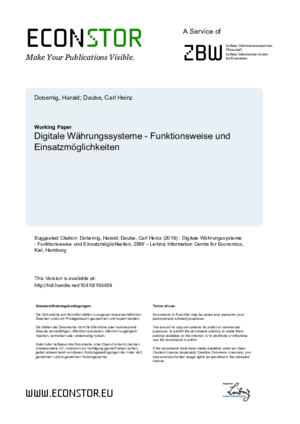
DIGITALE WÄHRUNGSSYSTEME - FUNKTIONSWEISE UND EINSATZMÖGLICHKEITEN (2019)
Authors:
Dobernig, Harald; Daube, Carl Heinz
Abstract:
Digital currency systems like Bitcoin want to overcome weaknesses of classical currency systems. The goal is to establish a global payment system, which is organized by the users alone independently of central instances. By executing transactions with a digital currency, anonymity and low transaction costs are expected. The Bitcoin concept provides a complex algorithm that limits the amount of money and to prevent inflationary developments, but the assessment of this concept varies. Some authors see it as a chance to revolutionize the money system technologically, others see it as the most exciting open source software project of the present. It is shown that the Bitcoin concept only partially meets the important requirements of a monetary system, such as acceptance, protection against inflation, security and stability. Therefore, digital currency systems are only partially able to remedy the weaknesses of classical currency systems. The main causes are the lack of value preservation and the volatility of the currency. Even a complete anonymity cannot be achieved even in a decentralized IT system. Nevertheless, digital currency systems have the potential for further development.
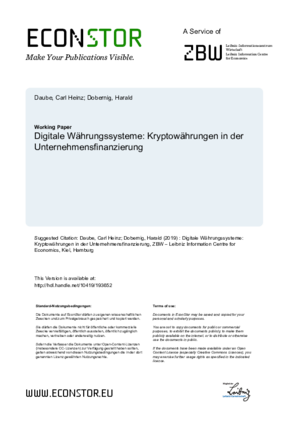
DIGITALE WÄHRUNGSSYSTEME: KRYPTOWÄHRUNGEN IN DER UNTERNEHMENSFINANZIERUNG (2019)
Authors:
Daube, Carl Heinz; Dobernig, Harald
Abstract:
In this working paper we basically try to answer two questions. First, we ask whether a crypto-currency is money or a currency at all in the traditional economic sense? Second, we ask whether a financial manager of a company may generate cost advantages by issuing debt in a crypto-currency? We analyse typical criteria in this respect for deciding about pros and cons of issuing debt in a crypt-currency and we take a closer look at empirical data.
Authors:
Daube, Carl Heinz; Krivenkov, Vladislav
Abstract:
Despite the fact that underpricing in new-issued bonds has been part of the academic discussion since at least 1969, it never got the same attention as underpricing of stock market IPOs. This paper follows the discussion and analyzes the pricing pf 1.566 fixed coupon Euro-dominated corporate bonds issued between 2009 and 2017. One of the main insights is a significant new-issue premium in the analyzed sample. The descriptive analysis of the realized issue premia is followed by a statistical modeling of these based on some bond characteristics.
AGILES BUSINESS MODELL MANAGEMENT MIT DEM CANVAS BUSINESS MODEL (2018)
Authors:
Daube, Carl Heinz; Becker, Marco
Problem definition:
In the context of ever-advancing digitalisation and in the course of the 4th Industrial Revolution (Industry 4.0), the business models of many companies must be subjected to continuous change in order to ensure the competitiveness and future viability of the company in the long term.
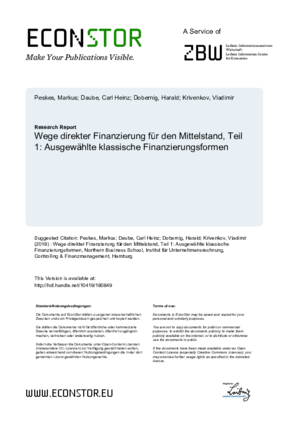
Authors:
Peskes, Markus; Daube, Carl Heinz; Dobernig, Harald; Krivenkov, Vladimir
Summary:
Analysis of classic and modern direct forms of financing for SMEs in the context of appropriate corporate financing.
MITTELSTANDSFINANZIERUNG: RAHMENBEDINGUNGEN, STATUS QUO UND ENTWICKLUNG (2017)
Authors:
Daube, Carl Heinz; Dobernig, Harald; Becker, Marco; Peskes, Markus
Abstract:
Small and midcap companies are the backbone of the German economy with respect to employment, contribution to GDP, tax payments, share at world market, innovation – to mention just a few. Hence, it is important that economic and political conditions are favorable for small and midsize enterprises. The article takes a closer look at the funding conditions for companies of the non-financial sector using data starting 2002 analyzing the usage of bank loans and turnover. The statistical outcome suggests that there is often a strong correlation between bank loans and turnover. However, it also suggests the traditional funding from banks is becoming less important and direct funding instruments using capital markets becoming more important.
STAATLICHE FÖRDERUNG IN ZEITEN DES CORONA-VIRUS (2020)
Autor:
Becker, Marco
Abstract:
Ziel dieses Working Papers ist es, eine erste kritische Betrachtung der staatlichen Förderinstrumente zur Abmilderung der Folgewirkung der Corona-Pandemie für Solo-Selbstständige, Einzelunternehmer, Kleinst- und Kleinunternehmen sowie mittelständische Unternehmen vorzunehmen. Hierzu wird das Instrument der Szenario-Analyse eingesetzt und vier fiktive Unternehmensszenarien untersucht. Aufgrund der Dynamik der Ereignisse im Zuge der globalen Corona-Pandemie sind in diesem Working Paper vorrangig die von den jeweiligen Bundesministerien neu kommunizierten Maßnahmen zur staatlichen Förderung mit dem Stichtag Montag 16. März 2020 berücksichtigt. Insoweit kann dieses Working Paper lediglich den aktuellen Stand widerspiegeln und bedarf ggf. im Laufe der Zeit einer periodischen Ergänzung.
Autor:
Daube, Carl Heinz
Abstract:
The aim of this working paper is to provide a first analysis of the massive price decrease in the international financial markets since early March 2020. This is done on the basis of an economic view, but sociological and psychological approaches are also used. The initial thesis is that the economic parameters were already "toxic" at the beginning of 2020.
THE CORONA VIRUS STOCK EXCHANGE CRASH (2020B)
Autor:
Daube, Carl Heinz
Abstract:
The aim of this working paper is to provide a first analysis of the massive price decrease in the international financial markets since early March 2020. This is done on the basis of an economic view, but sociological and psychological approaches are also used. The initial thesis is that the economic parameters were already "toxic" at the beginning of 2020.

DIGITALE WÄHRUNGSSYSTEME - FUNKTIONSWEISE UND EINSATZMÖGLICHKEITEN (2019)
Autoren:
Dobernig, Harald; Daube, Carl Heinz
Abstract:
Digital currency systems like Bitcoin want to overcome weaknesses of classical currency systems. The goal is to establish a global payment system, which is organized by the users alone independently of central instances. By executing transactions with a digital currency, anonymity and low transaction costs are expected. The Bitcoin concept provides a complex algorithm that limits the amount of money and to prevent inflationary developments, but the assessment of this concept varies. Some authors see it as a chance to revolutionize the money system technologically, others see it as the most exciting open source software project of the present. It is shown that the Bitcoin concept only partially meets the important requirements of a monetary system, such as acceptance, protection against inflation, security and stability. Therefore, digital currency systems are only partially able to remedy the weaknesses of classical currency systems. The main causes are the lack of value preservation and the volatility of the currency. Even a complete anonymity cannot be achieved even in a decentralized IT system. Nevertheless, digital currency systems have the potential for further development.

DIGITALE WÄHRUNGSSYSTEME: KRYPTOWÄHRUNGEN IN DER UNTERNEHMENSFINANZIERUNG (2019)
Autoren:
Daube, Carl Heinz; Dobernig, Harald
Abstract:
In this working paper we basically try to answer two questions. First, we ask whether a crypto-currency is money or a currency at all in the traditional economic sense? Second, we ask whether a financial manager of a company may generate cost advantages by issuing debt in a crypto-currency? We analyse typical criteria in this respect for deciding about pros and cons of issuing debt in a crypt-currency and we take a closer look at empirical data.
Autoren:
Daube, Carl Heinz; Krivenkov, Vladislav
Abstract:
Despite the fact that underpricing in new-issued bonds has been part of the academic discussion since at least 1969, it never got the same attention as underpricing of stock market IPOs. This paper follows the discussion and analyzes the pricing pf 1.566 fixed coupon Euro-dominated corporate bonds issued between 2009 and 2017. One of the main insights is a significant new-issue premium in the analyzed sample. The descriptive analysis of the realized issue premia is followed by a statistical modeling of these based on some bond characteristics.
AGILES BUSINESS MODELL MANAGEMENT MIT DEM CANVAS BUSINESS MODEL (2018)
Autoren:
Daube, Carl Heinz; Becker, Marco
Problemstellung:
Im Kontext der immer weiter fortschreitenden Digitalisierung sowie im Zuge der 4. Industriellen Revolution (Industrie 4.0) müssen die Business Models vieler Unternehmen einem kontinuierlichen Wandel unterzogen werden, um die Wettbewerbsfähigkeit und die Zukunftsfähigkeit des Unternehmens langfristig sicherzustellen.

Autoren:
Peskes, Markus; Daube, Carl Heinz; Dobernig, Harald; Krivenkov, Vladimir
Zusammenfassung: Analyse klassischer und moderner direkter Finanzierungsformen für den Mittelstand im Rahmen einer sachgerechten Unternehmensfinanzierung
MITTELSTANDSFINANZIERUNG: RAHMENBEDINGUNGEN, STATUS QUO UND ENTWICKLUNG (2017)
Autoren:
Daube, Carl Heinz; Dobernig, Harald; Becker, Marco; Peskes, Markus
Abstract:
Small and midcap companies are the backbone of the German economy with respect to employment, contribution to GDP, tax payments, share at world market, innovation – to mention just a few. Hence, it is important that economic and political conditions are favorable for small and midsize enterprises. The article takes a closer look at the funding conditions for companies of the non-financial sector using data starting 2002 analyzing the usage of bank loans and turnover. The statistical outcome suggests that there is often a strong correlation between bank loans and turnover. However, it also suggests the traditional funding from banks is becoming less important and direct funding instruments using capital markets becoming more important.


